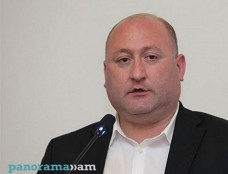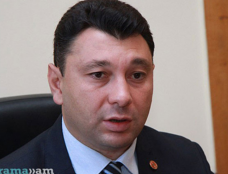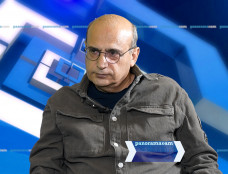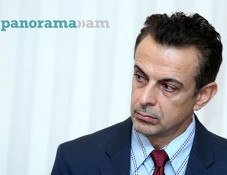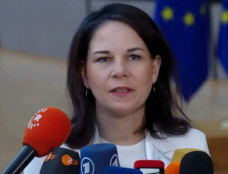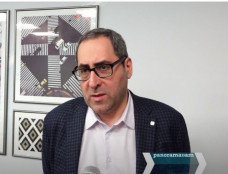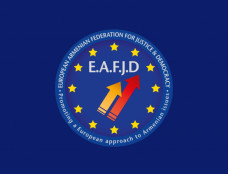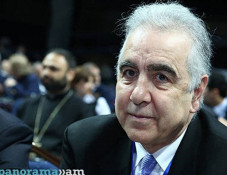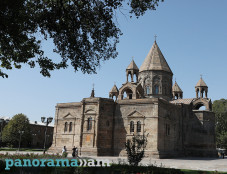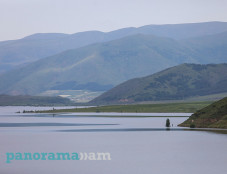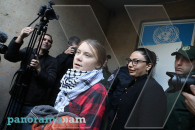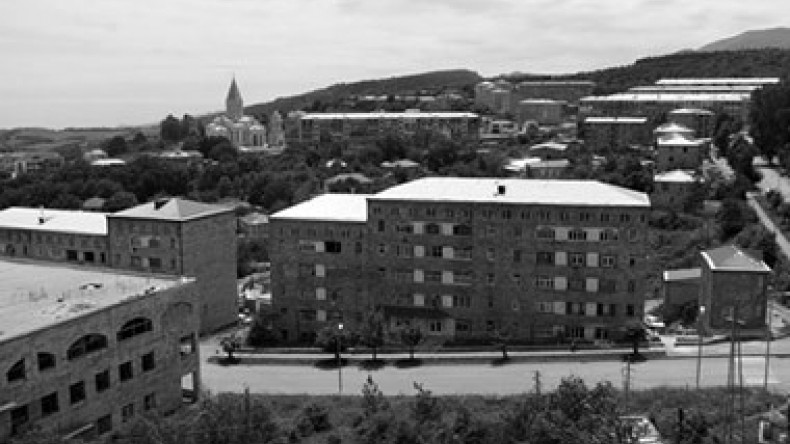
Nagorno-Karabagh: Preventive and remedial recognition vs. Azerbaijani threats
Artak Beglaryan for The Armenian Weekly
The Nagorno-Karabagh conflict, one of the longest-lasting conflicts in the region, seems to have passed into an essential phase of its settlement. On May 30, the Legislature of Louisiana recognized the independence of the Nagorno Karabagh Republic (NKR; also known as the Republic of Artsakh). This action at the U.S. state level has precedents, such as similar resolutions passed by Maine, Massachusetts, and Rhode Island in the recent months. The recognition of NKR’s independence at the state level has gone beyond America’s shores, as the largest Australian state of New South Wales also passed a resolution in 2012.
Although such resolutions by non-subjects of international law do not change the legal status of that de facto state in the international community, its political significance cannot be underestimated. Firstly, it warns Azerbaijan that time works towards the final recognition of the Karabagh. This fact may put pressure on the Azerbaijani side during negotiations to recede from its maximalist position. In fact, it is a response to Baku’s military rhetoric and heavy armament, upon which it clearly relies on the long term. The recognition campaign also raises awareness about the Nagorno-Karabagh issue and the democratic merits of that non-recognized republic; that positive awareness will surely increase the chances of further recognition acts by states and sub-state units.
That recognition campaign, perceived by Azerbaijan as a risk, causes aggressive counter-reaction. In addition to its traditional military rhetoric, Azerbaijan regularly provokes tensions with grave incidents on the frontline and explicitly violates the rules of conventional arms control. Moreover, Baku recently took two steps that escalated the tension around the Karabagh issue and deepened the gap of trust between the Armenian and Azerbaijani societies. The first shock was the extradition to Azerbaijan and the pardon of army officer Ramil Safarov. He had been serving a life sentence in Hungary for axing to death Armenian army officer Gurgen Margaryan in his sleep. It happened in 2004, when both of them were participating in the NATO “Partnership for Peace” program. As the murderer himself proudly said, the reason for his brutal action was the hatred he felt towards all Armenians, a statement widely propagandized by the Azerbaijani authorities. Safarov’s extradition to Azerbaijan in August 2012, organized together with the government of Hungary, and heroization in his homeland shocked the international community, causing worldwide outrage. At the diplomatic level, Armenia’s response to Hungary’s infamous deal with Azerbaijan was its suspension of relations with Budapest.
This scandalous step by the Aliyev clan was likely carried out for the following reasons: First, he aimed to nourish the nationalist sentiments of the Azerbaijani society, which are directed mainly against Armenians, and increase the bellicose mood in the society in preparation for further military actions against Karabagh. Or, using the Nagorno-Karabagh card and, in this case, pardoning the axe-murderer, Aliyev aimed to raise his legitimacy among the considerable nationalist masses of the society. Undoubtedly, that legitimacy is needed prior to the presidential elections of 2013, when this authoritarian leader is elected to an undemocratic third term, in particular since his legitimacy was shaken as a result of continuous violations of human rights and freedoms in Azerbaijan. Thirdly, it was a clear message to Armenia and the international community that Azerbaijan’s position in the negotiations would not become softer; rather, its BATNA (i.e., renewal of the war) would be more probable. It is arguable whether the message has worked or not. What is clear, however, is that it spurred a huge negative reaction by the main great powers involved in south Caucasus affairs.
At the beginning, there was a risk that the Safarov case would freeze talks between Armenia and Azerbaijan; however, that risk has mostly been overcome due to the efforts of the mediators. In parallel to the calming down of the first storm, though, other clouds gathered in the Armenian-Azerbaijani sky. In recent months, especially, the tension over the Stepanakert airport has intensified. The authorities of the Nagorno-Karabagh Republic are planning to run the airport for humanitarian flights, but Baku has threatened to shoot down any civilian planes flying to and from Karabagh.
This is another demonstration of the anti-Armenian hysteria of the Aliyev clan. Who would ever think of attacking civilian aircrafts? Beyond simply creating/maintaining humanitarian obstacles for the Nagorno-Karabagh people, Baku is concerned about the legal consequences of allowing flights over the territory of that non-recognized state. Those fears made the OSCE Minsk Group (the main mediator body of the ongoing talks, with French, Russian, and American co-chairmanship) assert with a statement that the flights cannot affect the legal status of Nagorno-Karabagh. Despite this statement, the Azerbaijani authorities still continue to threaten downing civilian aircraft. This has become the top issue for the mediators in recent meetings, and it seems that Azerbaijan seeks to utilize the airport problem in the bargaining process.
After some delay, the NKR authorities said that the airport would be launched soon. This decision likely took into account Armenia’s statement that its anti-missile systems would secure the Karabagh flights.
Some experts argue that Russia is seeking to deploy peacekeepers around the Stepanakert airport as a guarantee of its security, thus increasing Moscow’s weight in the region, since the Karabagh conflict is believed to be the most significant stability/instability factor in the South Caucasus. Indisputably, any Russian soldier on that ground would cause trouble among the other influential actors of and in the region, including the EU and the U.S. In order to avoid any possible change in the current balance among the external players around the conflict, as well as to avoid a new devastating war in the region, all interested actors must prevent Azerbaijan from attacking the civilian planes, and instead provide the Armenian side with clear guarantees.
The airport will be launched sooner or later, since it has enormous humanitarian significance for the Karabagh people and no international law forbids its operation. However, the question of whether Azerbaijan will attack the civilian aircrafts is still uncertain. Since any attack to the planes, logically, will trigger the resumption of the war, and the great players are strongly interested in sustaining the peace in the region, they must keep Azerbaijan away from any adventurous and terrorist behavior. How should they ensure the desirable peace in and around the conflict zone? The answer is explicit—that is, to act instead of talking. As the notion of security dilemma assumes, the arms race in the South Caucasus increases the chance of a new war. The abovementioned two shocks, along with the frequent incidents on the frontline, are considerable symptoms of the exhaustion of the security dilemma. To avoid such a scenario with large-scale humanitarian and geopolitical crises, as well as to resolve the Karabagh conflict once and for all, the best option will be for the international community to provide the NKR with preventive recognition.
Undoubtedly, preventive recognition will become the powerful chain that keeps Azerbaijan away from attacking an internationally recognized state, forcing it to abide with reality, like Serbia does in the case of Kosovo. The concept of remedial recognition could also be applicable here. It may work not only as a remedy for the 1990’s war and the ongoing deprivations and threats, but also as a response to the likely effects of possible warfare in the future. Hence, the resolutions recognizing the Nagorno-Karabagh Republic’s independence by sub-state units have already paved the way to preventive and/or remedial recognition by the majority of the subjects of international law. One would hope that the international community will not miss the opportunity of establishing enduring peace in the region.
Artak Beglaryan is Assistant to the Prime Minister of the Nagorno-Karabagh Republic, and is currently studying at the Fletcher School of Law and Diplomacy in Massachusetts. This is his first article for The Armenian Weekly.
Newsfeed
Videos





